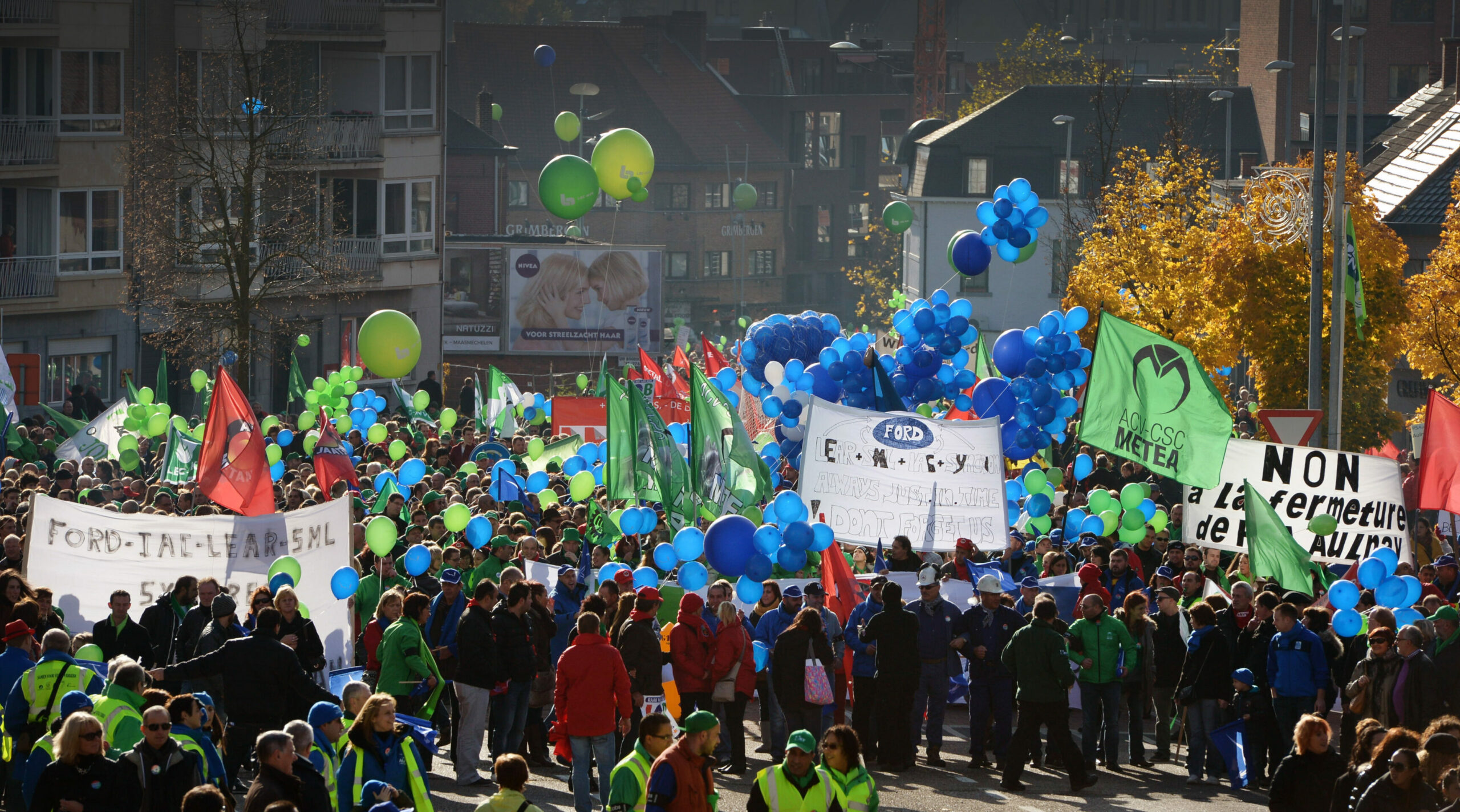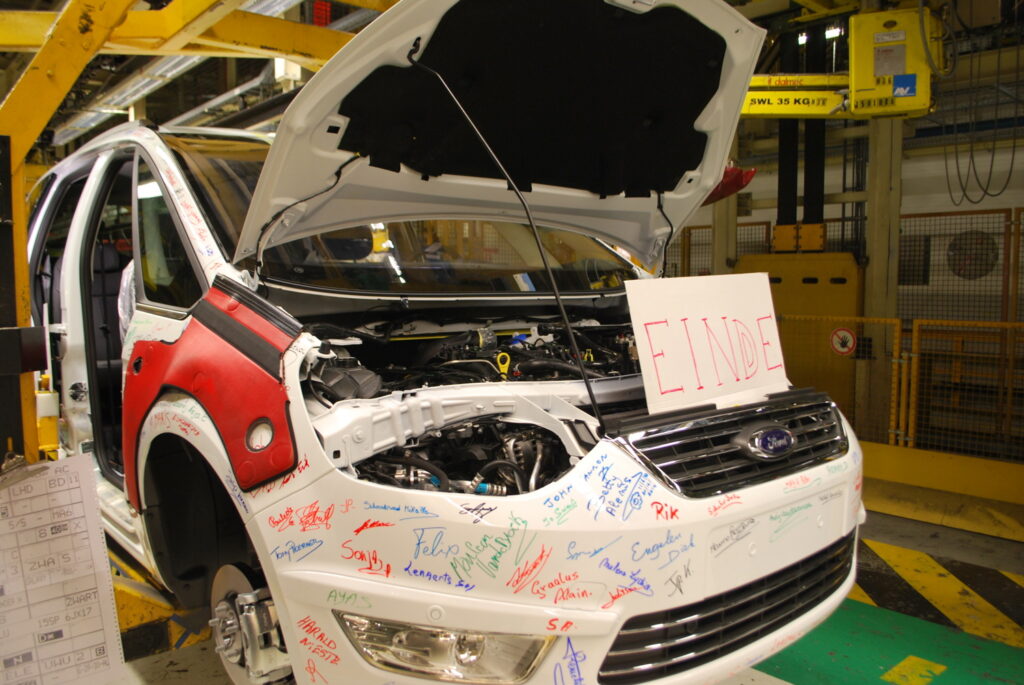On 18 December 2014, exactly ten years ago, the doors of the Ford factory in Genk (Limburg province), where approximately 4,300 workers and employees were employed, were permanently closed. Since then, various other car factories in Belgium have met a similar fate.
The plant's closure led to the loss of thousands of jobs at suppliers and dependent businesses. In total, the Flemish employer organisation Voka estimates that 10,000 jobs were lost.
On 24 October 2012, after months of speculation and rumours, Ford Genk announced that the international management had decided to close the plant in two years. The manufacturer cited overproduction in its European plants and transferred the production of the Mondeo, S-Max and Galaxy models to Valencia, Spain.
This announcement was not without incident; a union action in Cologne, Germany, escalated on 7 November 2012. German police officers were injured, and workers from Genk were arrested.

A national march for the future to support the workers with the closing of Ford Genk. Credit: Belga/Yorick Jansens.
Staff were angered when they heard that Stephen Odell, the director of Ford Europe, had received a promotion. This was soon followed by the March for the Future that gathered around 20,000 people in the streets of Genk.
On 15 March 2013, the negotiated redundancy plan was approved and in June that year the factory’s activity slowed, with only one shift working instead of two and production reduced from 800 vehicles per day to 500. The factory closed permanently on 18 December 2014.
Ford Genk was one of the largest employers in Limburg and an economic driver in the region. The loss of these was a blow to the region that also slowed household consumption, according to Voka Limburg. Local retail businesses and other sectors were also affected, as many households had to tighten their belts.

Ford employees pictured during the final production day at the factory of Ford in Genk. Credit: Belga/Yorick Jansens.
In 2013, the Flemish government launched a strategic plan to revitalise the Limburg economy. It aimed to diversify the economy, renew infrastructures, and stimulate tourism and cultural initiatives.
In 2015, the province was recognised as an assisted area, meaning businesses could benefit from support measures when investing there. According to Voka, over 700 Limburg companies benefited from this aid, which is said to have created nearly 11,000 jobs.
The former Ford factory has since become Logistics Valley Flanders, a new industrial zone where a 430-metre quay has been built. The Flemish Waterway Authority (Vlaamse Waterweg) plans to develop a container terminal there. The old halls and buildings along the canal have been demolished in recent years, freeing nearly 100 hectares of land.
Other car plants in the country met a similar fate. The closure of Renault in Vilvoorde in 1997 led to the Renault law, which governs collective redundancies. Audi Brussels today employs around 3,000 people and is set to close at the end of February 2025. This will leave only Volvo Car in Ghent as a major car factory in Belgium.

